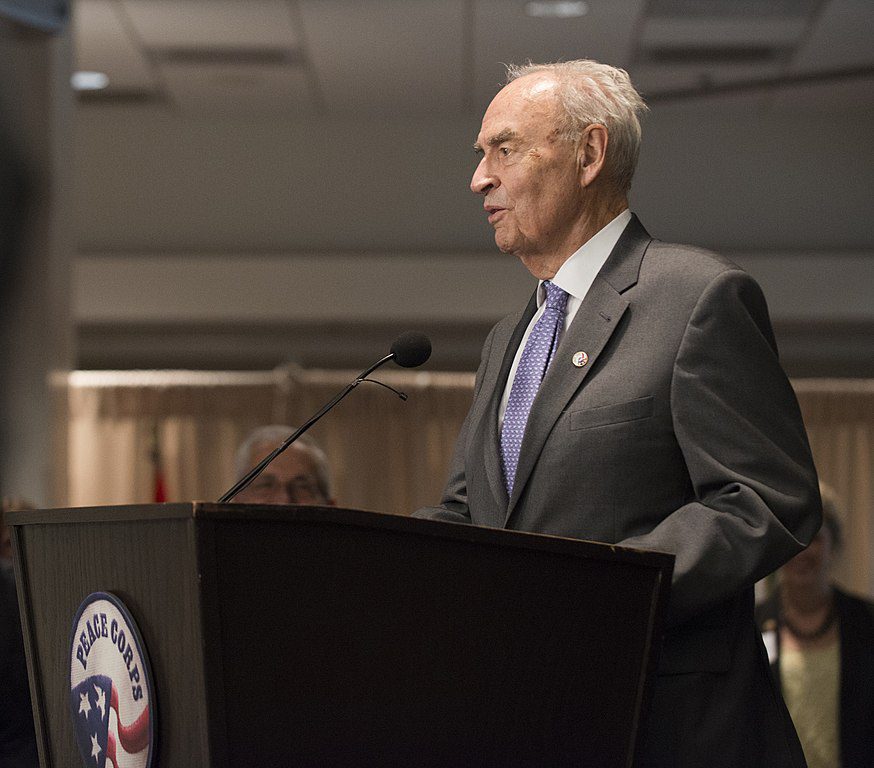Harris Wofford: A Contrarian of Generous Spirit
By • January 24, 2019 0 706

Harris Wofford, a former U.S. senator from Pennsylvania, a contrarian of generous and diverse spirit, a man of the world who helped alter our world, died Jan. 21 at a Washington hospital at the age of 92.
According to his son, the cause was complications from a fall.
That phrase — complications from a fall — seems prosaic, almost silent and fragile, hardly strong enough to embrace a life lived on such a large canvas. But it also fits. Wofford was not a man to proclaim himself to be noticed, accompanied by brass instruments and brassy pronouncements.
If there was an individual who could encapsulate the best, most honorable and active parts of the words Liberal and liberal, it was Wofford. In these times of literal fear and faction, on display every day in the news media and on social media, there are few who live the life politic and political like Wofford lived his, and more’s the pity — and the more pitiful our political life.
Raised in an atmosphere of privilege, Wofford made a life thick with accomplishment, with worldly experience, with curiosity, the results of which were translated into action. He was a true liberal whose liberality took the form of transformative acts, cemented by honest principles, which aimed to raise people up.
Witness his encounters with history; he saw Mussolini and Gandhi in his youthful travels. As a teenager, he founded a student group to oppose world fascism; he later served in World War II. Consider his life as an educator; he taught law at Notre Dame and became president of a State University of New York campus and of Bryn Mawr College.
After graduating from the University of Chicago and going to law school at historically black Howard, then at Yale, he became an early supporter of the civil rights movement, advising Martin Luther King Jr. When King landed in jail, Wofford facilitated contact with President John F. Kennedy, eventually leading to King’s release. JFK appointed him a special assistant to the president on civil rights and Wofford helped found the Peace Corps with Sargent Shriver.
In life, he seemed to be everywhere, a thinker but also a doer. He managed to get himself arrested during the Chicago Democratic Convention. He was named to serve out the term of Sen. John Heinz, who died in an aircraft collision in 1991, and was elected to the senate from Pennsylvania in his own right later that year.
After losing his bid for a second term to Rick Santorum, Wofford headed the Corporation for National and Community Service, which administers the AmeriCorps program. Some may remember him introducing candidate Barack Obama before he gave his speech on race in Philadelphia.
In 1948, he married Clare Lindgren, with whom he had four children. She passed away from leukemia in 1996 at the age of 68.
In 2016, not so long ago, Wofford wrote an essay for the New York Times titled: “Finding Love Again, This Time With a Man.” In it, he announced that he and interior designer Matthew Charlton were a couple. That same year, they married.
According to National Public Radio (for which Wofford was a commentator), Wofford’s legislative director in the Senate, John Gomperts, said that his former mentor’s life was “one giant adventure.” His legacy, Gomperts told NPR, was “the buoyant and endless pursuit of a better nation, a better world.”

